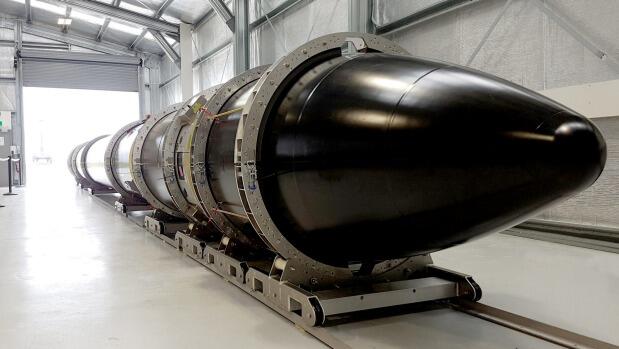Countries around the world are trying to grow technology and gain high-tech workers.
There’s a growing realisation that technology is important for getting economic growth and high wages.
In many countries, governments are introducing policies to help grow new technological industries and the skills needed for them.
Kirk Hope is the chief executive of BusinessNZ.
New Zealand is doing the same, with good results.
Tech is now New Zealand’s fastest growing sector and our third largest export industry.
Some of our home-grown tech businesses are absolutely amazing.
Think of Martin Jetpacks, the Kiwi-founded company now making hovering air vehicles at its Wigram factory.
Or Rocket Lab, the Kiwi-founded company making orbital rockets for commercial space trips for regular launch from Mahia Peninsula.
New Zealand-made jetpacks and rockets would have been considered wildly futuristic only a few years ago.
But those enterprises were grown by local individuals with passion and some relevant skills.
New Zealand has always had a love for technology and was an early mover in developing agriculture-based scientific development – electric fencing, electronic stock control systems, weather monitoring, crop rotation, scientific breeding practices and so on.
Over recent years we’ve diversified from farm tech to many other forms of technology – high-tech manufacturing, biotech and digital technologies of many kinds.
Medical devices, agritech, digital entertainment, animation and visual effects, automation systems, specialist software, data analysis, GPS products, data warehousing, electricity management systems, electronic switching, banking and financial services software, electronic payment systems, nuclear imaging, fleet tracking, digital advertising, cancer diagnostics, solar technologies, parking management and biopharmaceuticals are among the dizzying range of high tech products and services being created by New Zealand companies.
They are making a huge contribution to New Zealand’s economic growth.
TIN200 research shows F&P Appliances (healthcare) and Datacom (IT systems) are earning billion-dollar revenues; others like Gallagher Group (animal control systems), Xero (accounting software) and Orion (healthcare) are making over half a billion, largely from exports.
Meanwhile, digital entertainment revenues are growing. Digital-based productions by Sir Peter Jackson and James Cameron are likely to continue increasing blockbuster revenues.
The question is, how can we get more of these great technology businesses?
The things that are needed to increase the flow of innovative new businesses are skills, infrastructure and a supportive environment.
Skills are critical for tech success. That’s why it is so important to have a well-functioning education system with strengths in science, technology, engineering and maths. We need to keep the focus on improving those outcomes from our schools and tertiary organisations.
Infrastructure is essential, for example the broadband rollout through the country is critically needed to enable future digital enterprise.
And a supportive environment can work wonders, for example the efforts of local agencies in Wellington have done much to spark the growth of tech businesses, including early fibre-optic cabling of the CBD and support for film-making infrastructure.
The Wellington Regional Economic Development Agency’s current promotion assisting high-tech individuals to come from overseas to work in Wellington businesses is a good example – nearly 50,000 have applied for 100 places in tech roles in Wellington.
It’s estimated that filling those currently unfilled roles would generate an excess of $4.5 million contribution towards the regional economy.
Getting more technical skills into the local economy while promoting New Zealand as a destination for technical endeavour – that’s a great example of a supportive environment for tech.
It’s exciting to see the technology sector growing so strongly in New Zealand.
We need to continue supporting its growth and celebrating its success.
Source: http://bit.ly/2pFYjwA












